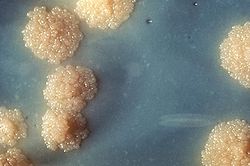Biography


S. Ramachandran did his undergraduate studies at the St. Xavier's College, Kolkata and after earning a BSc (honors) degree from the University of Calcutta, he completed post graduate studies at Jawaharlal Nehru University (JNU) in biotechnology. [1] Continuing at JNU, he secured a PhD in 1993 and started his career by joining the Institute of Genomics and Integrative Biology (IGIB) where he serves as a senior principal scientist at the department of genome analysis. [2] He also serves as an adjunct faculty and principal scientist at the faculty of biological sciences of the University of Calcutta, holding the position of a professor of Academy of Scientific and Innovative Research (AcSIR). [1]
Ramachandran's research is in the field of informative bioinformatics and he leads a group of scientists engaged in integrative immunoinformatics, architecture of gene co-expression and flux modeling. [3] He is credited with the discovery of new virulence factors in Mycobacterium tuberculosis, which was accomplished using computational analysis; the studies were subsequently verified through experiments. He is the co-developer of SPAAN, a genome informatics software [4] and has contributed to the development of OSDDlinux, a customized computer operating system for drug discovery. [5] His studies have been documented by way of a number of articles [6] [note 1] and ResearchGate, an online repository of scientific articles has listed 115 of them. [7] Besides he has delivered keynote or invited speeches at various seminars and conferences. [8] [9] [10]
The Department of Biotechnology of the Government of India awarded him the National Bioscience Award for Career Development, one of the highest Indian science awards in 2007. [11]